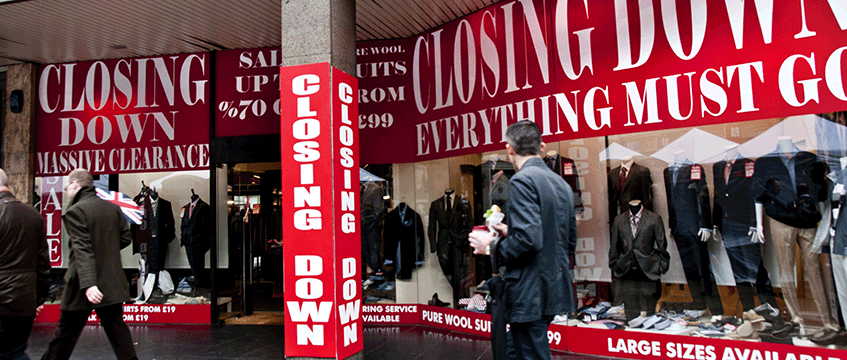Local authorities should reduce their dependence on high street retailers and use the space for offices and housing, according to a report by Centre for Cities.
City and town centres in England and Wales that are dominated by retail are particularly at risk from higher rates of consumer spending online, the research showed.
The think thank suggested that cities convert shops into offices in order to boost their economic prospects.
The retail sector has been hit by a wave of store closures and job losses as the high street struggles to compete against internet shopping.
Centre for Cities found that in successful city centres, offices made up almost two thirds of the commercial space, whereas in poorly performing city centres – or those with a small proportion of highly productive companies and jobs – they made up less than a quarter.
Vacancy rates tell a story
The report also showed that cities and towns with a significant retail presence do not have enough demand to sustain all the shops, leading to average vacancy rates of 16% – almost double the 9% in prosperous cities.
For example, in Blackpool and Newport, over 40% of all commercial space is in retail and vacancy rates are 24% and 28% respectively.
In contrast, city centres within the South East have much lower average vacancy rates, with the share of empty shops in Cambridge and London at under 10%.
The report also suggested that cities convert some high street shops into homes or offices. In cities with very low demand for commercial and residential property, it recommended demolition to enable the land to be used to “improve the public realm”.
Government-backed regeneration needed
Centre for Cities recommended the government should play a role in city centre regeneration.
It suggested that in cities where the private sector does not lead office development, local authorities supply small amounts of new office space.
It added that the government should reform business rates to permit more frequent revaluations.
Andrew Carter, the chief executive of Centre for Cities, said: “Each day seems to bring a new crisis for the high street but the answer is not to double down on the declining retail sector.
“Instead, we need to reimagine struggling city centres as places where lots of different businesses can locate and create jobs – and where lots of people want to go to for a variety of reasons.
“This means reducing the reliance on shops and focusing on creating a more attractive environment for a wider range of firms.
“We also need to make our high streets more open and appealing spaces for people to spend time or live in, by improving public realm and transport links, and potentially introducing more housing.”











